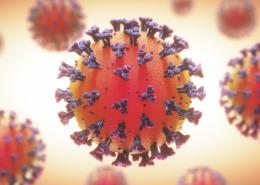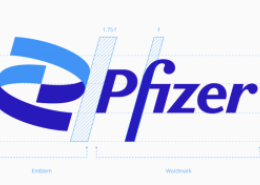Fox Chase Cancer Center and Sylvester Comprehensive Cancer Center Collaborate with Pfizer’s Institute of Translational Equitable Medicine to Identify Novel Genetic Drivers of Cancer Disparities in African Ancestry Populations
- Collaboration leverages the African Caribbean Cancer Consortium, a multi-institutional and transcontinental network of scientists, oncologists, and health professionals focused on understanding cancer risk and outcomes among people of African ancestry.
- The overarching goal of the study is to create a cancer genome registry of ethnically diverse patients designed to expand existing resources and advance health equity through genomics, molecular epidemiology, and social determinants of health research in African Ancestry oncology patients.
(PHILDELPHIA and MIAMI, November 10, 2022)— Fox Chase Cancer Center and Sylvester Comprehensive Cancer Center announced a collaboration today with Pfizer’s Institute of Translational Equitable Medicine (ITEM) to launch a cancer genomics study to characterize novel genetic, molecular, and social determinants of cancer across populations of African Ancestry.
“People of African ancestry disproportionately develop aggressive, high-grade cancers, particularly in breast and prostate tissues, and the underlying driving factors are not well understood,” said Sophia HL George, PhD, associate director of Diversity, Equity, and Inclusion at Sylvester Comprehensive Cancer Center, part of the University of Miami Health System, and co-leader of the African Caribbean Cancer Consortium (AC3) Women’s Cancer Working Group. Despite a high unmet need, there are a limited number of research studies statistically powered to investigate cancer risk and outcomes in people of African ancestry.
In order to address these knowledge gaps, this collaboration will build a clinicogenomic registry of biological specimens accompanied by epidemiological, behavioral, and clinical data from African ancestry patients diagnosed with breast and prostate cancer. Leveraging the AC3 network’s global reach, the team will recruit patients from ethnically, geographically, and socioeconomically diverse subpopulations across the African diaspora: U.S. born and immigrant Black patients residing in the United States, patients from moderate and low-income countries in the Caribbean islands, and patients from Western, Eastern, and Southern countries in the African subcontinent.
Scientific objectives of this study include 1) identifying somatic and rare pathogenic germline genetic drivers of cancer using paired tumor-normal whole exome sequencing, 2) determining inherited cancer risk using gene panel testing in known cancer drivers, 3) characterizing hormone receptor status using immunohistochemistry, and 4) denoting key socioeconomic and lifestyle factors influencing cancer outcomes in African ancestry patients.
“We established the Institute of Translational Equitable Medicine to achieve health equity by preventing, treating, and identifying disease drivers that disproportionately impact underserved and minority populations nationally and globally. Our goal is to use data to help better understand the drivers of health inequities,” said Aida Habtezion, MD, MSc, FRCPC, AGAF, Chief Medical Officer and Head of Worldwide Medical & Safety at Pfizer. “We are thrilled to be collaborating with Fox Chase Cancer Center, Sylvester Comprehensive Cancer Center, and the African Caribbean Cancer Consortium to begin closing gaps in applying scientific knowledge to disparities in disease incidence, prevalence, and outcomes for African ancestry cancer patients.”
“This registry will allow us to conduct studies that will add to the limited available data for Blacks, including genetics, genomics and gene-environment interaction studies that will help to fill specific knowledge gaps in the literature addressing aggressive disease in African ancestry cancer patients,” said Camille Ragin, PhD, MPH, associate director of Diversity, Equity, and Inclusion at Fox Chase and co-leader and founder of AC3.
The study will include cancer patients from Fox Chase Cancer Center, Sylvester Comprehensive Cancer Center, the University of Alabama, Augusta University in collaboration with Morgan State University, as well as nine international AC3 research sites in the Bahamas, Barbados, Benin, Burkina Faso, Haiti, Jamaica, Kenya, Namibia, and Trinidad and Tobago.
“This is a very big effort and is possible only because of our long-standing working relationships with AC3 site leaders like Valerie Odero-Marah, PhD, of historically black Morgan State University, who is co-leader of the AC3 prostate cancer working group, and Ann Korir, of the Kenya Medical Research Institute, who is co-leader of the AC3 women’s cancer working group. The only way we could pull off this kind of coordinated effort is because everyone in the AC3 network is playing and leading their part of it,” said Ragin.
“We want to enable African and Caribbean researchers ask questions collaboratively across the U.S, Africa, and the Caribbean so that we can lead projects that affect our populations,” said George, “This is exciting because the way the collaboration has been designed, there is equity in who is participating, who is leading, and who is at the center of the project.”
***
About Fox Chase Cancer Center
Fox Chase Cancer Center (Fox Chase), which includes the Institute for Cancer Research and the American Oncologic Hospital and is a part of Temple Health, is one of the leading comprehensive cancer centers in the United States. Founded in 1904 in Philadelphia as one of the nation’s first cancer hospitals, Fox Chase was also among the first institutions to be designated a National Cancer Institute Comprehensive Cancer Center in 1974. Fox Chase is also one of just 10 members of the Alliance of Dedicated Cancer Centers. Fox Chase researchers have won the highest awards in their fields, including two Nobel Prizes. Fox Chase physicians are also routinely recognized in national rankings, and the Center’s nursing program has received the Magnet recognition for excellence five consecutive times. Today, Fox Chase conducts a broad array of nationally competitive basic, translational, and clinical research, with special programs in cancer prevention, detection, survivorship, and community outreach. It is the policy of Fox Chase Cancer Center that there shall be no exclusion from, or participation in, and no one denied the benefits of, the delivery of quality medical care on the basis of race, ethnicity, religion, sexual orientation, gender, gender identity/expression, disability, age, ancestry, color, national origin, physical ability, level of education, or source of payment.
For more information, call 888-369-2427.
About Sylvester Comprehensive Cancer Center
Sylvester Comprehensive Cancer Center, part of UHealth — University of Miami Health System and the University of Miami Miller School of Medicine, is the only cancer center in South Florida designated by the National Cancer Institute. NCI designation recognizes that Sylvester has met the most rigorous standards for cancer research, beginning in our laboratories, extending to patient care, and meeting specific needs in our community. Sylvester is known as South Florida’s leader in patient-focused cancer research and care, offering the only Phase 1 Clinical Trials program – the first step in evaluating how patients respond to the latest investigational treatments. NCI designation further expands Sylvester’s ability to provide access to novel therapies through more clinical trials and collaboration with other designated centers. Equipped with a highly qualified team of more than 2,400 cancer-focused physicians, researchers and support staff working together, Sylvester discovers, develops, and delivers more precision cancer care. To serve current and future patients, Sylvester has a network of conveniently located outpatient treatment facilities throughout South Florida.
Media Contact:
Fox Chase Cancer Center
Amy Merves
215-280-0810
Amy.Merves@fccc.edu
Sylvester Comprehensive Cancer Center
Ann Dux
305-434-0711
AnnDux@med.miami.edu








